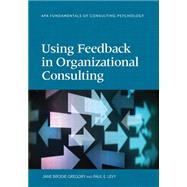Feedback is an essential part of communication, coaching, management, and human resource practices. Yet the essential elements that make feedback more effective often fail to go beyond the pages of academic journal articles and into the workplace where they could greatly improve communication and performance. This book is an easy-to-use resource that applies classic and current research findings to create actionable, evidence-based tactics that consulting psychologists, consultants, managers, and HR personnel can use to improve feedback exchanges in any work environment.
The authors present a simple and straightforward model of the feedback process that includes four critical elements that can make or break a feedback exchange:
- the actions and behaviors of the feedback provider,
- the content of the message,
- the beliefs and perceptions of the feedback recipient, and
- the context in which feedback is provided.








